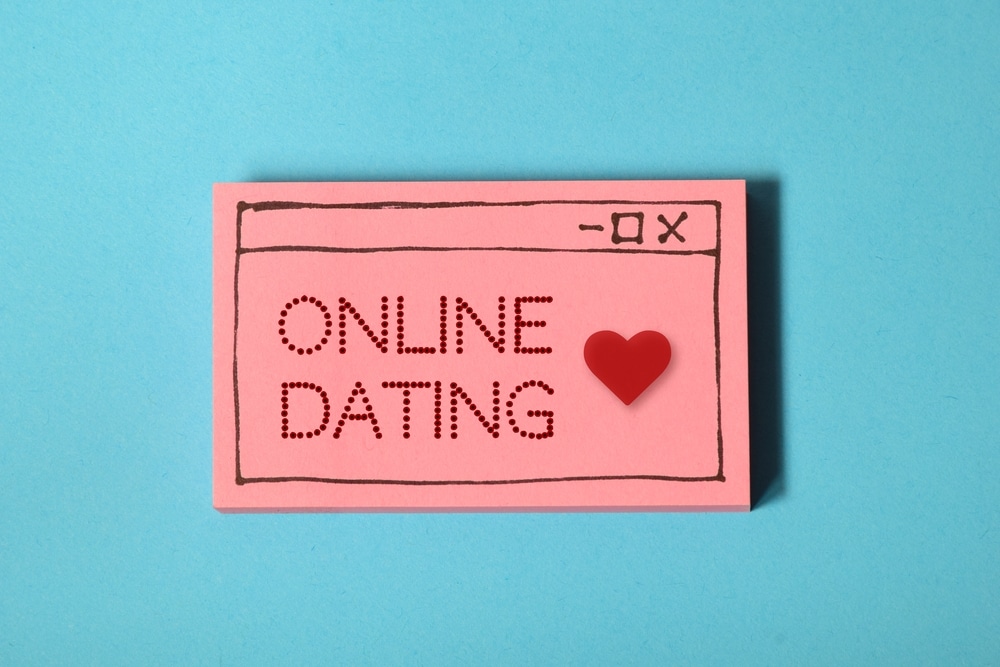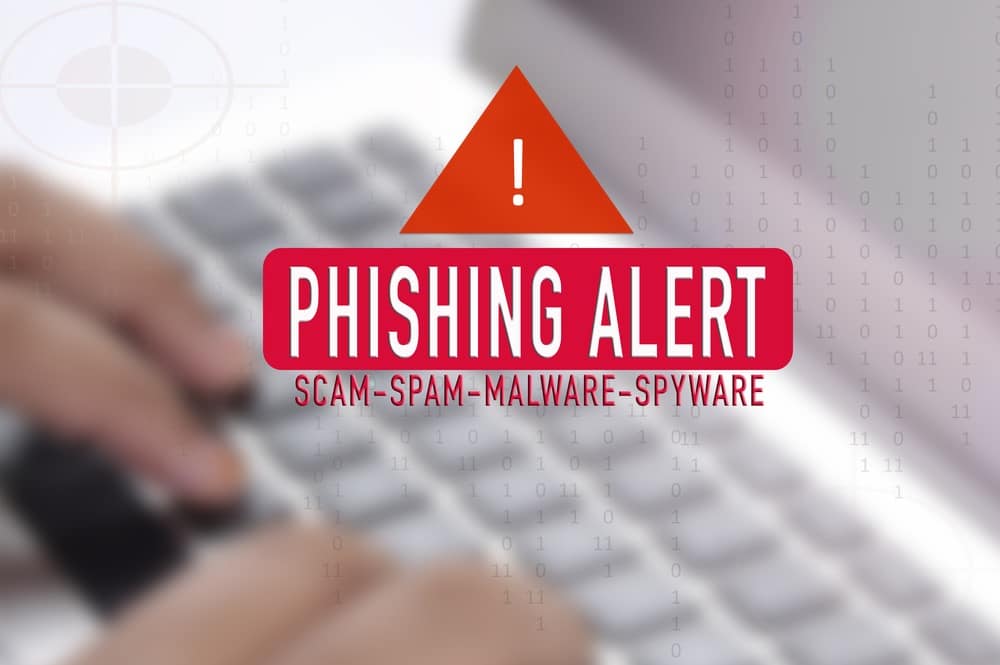How To Safely Communicate With Someone On A Dating Site For Married People

Let’s face it, figuring out how to safely communicate with someone on a dating site for married people can feel like trying to walk on the moon with a pair of flip-flops. It’s a whole new world out there, filled with promise but also fraught with peril.
Online dating, especially for the committed, can feel like wandering into a labyrinth. You’re excited to explore, yet a little part of you is wary of the Minotaur lurking in the shadows. That Minotaur, my friends, is the danger of scams lurking on dating platforms. It’s a beast that’s as cunning as it is heartless, ready to take advantage of the unwary at a moment’s notice.
But fear not! I’m here, your digital Theseus, to guide you through this maze. In this article, I’ll be your torchlight, helping you see the traps before you step into them. From understanding the various scams that can ensnare you to recognizing the red flags and learning how to protect yourself, I’ve got your back. And for those who’ve been unfortunate enough to be scammed, I’ve got advice on how to pick up the pieces too.
How To Safely Communicate With Someone On A Dating Site For Married People
Now, you might ask, why should you trust me? Well, I’ve spent countless hours studying this digital underworld, understanding its machinations, and figuring out the best ways to keep you safe. Consider me your seasoned guide, well-versed in the tricks and traps of online dating scams, ready to help you navigate this tricky terrain.
Together, we’ll explore how to safely communicate with someone on a dating site for married people. You’ll learn not just how to protect your heart but also how to guard your privacy and your finances. By the end of this guide, you’ll be able to traverse the landscape of online dating with confidence, knowing that you’re well-equipped to recognize and avoid the pitfalls that could trip you up.
So, buckle up and get ready for a journey that will empower you to walk through the labyrinth of online dating with your head held high and your footsteps sure. Remember, the goal here isn’t just to avoid the Minotaur, but to conquer the labyrinth itself!
Understanding Online Dating Scams
What are Online Dating Scams?
You know, the heart wants what it wants, but sometimes what it gets is a big, fat scam. Online dating scams, also known as romance scams, are a real bummer. They occur when a scammer creates a fake identity on a dating site to form a relationship with an unsuspecting individual. Their goal? No, it’s not true love, but to swindle money, gain personal information or cause emotional distress. They’re a nasty business, really.
The scammer plays the role of an interested suitor, building an emotional connection that feels like a budding romance. It’s a performance worthy of an Oscar, but remember, it’s all smoke and mirrors. Once they have their claws in you, they make their move, often asking for money or personal details. Trust me, their stories can be as creative as a bestselling novel.
Why Are Dating Sites for Married People Targeted?
Just when you thought it couldn’t get any more complicated, it does. Dating sites for married people are a particular hotspot for these con artists. Why? Well, it’s a little like fishing in a barrel.
Firstly, the users of these sites are already engaged in secretive behavior, which makes them less likely to report any foul play. It’s a sad truth, but scammers are like sharks that smell blood in the water.
Secondly, there’s often a higher level of desperation or vulnerability among users on these sites. They’re seeking something outside of their current situation, and that makes them an easy target. It’s like the scammer is offering them a shiny new toy, but surprise – it’s rigged with dynamite!
Lastly, financial stability is often assumed in this audience. Let’s face it, maintaining two relationships can be expensive. Scammers know this and may see these individuals as ripe for the picking.
In short, online dating scams are a twisted form of manipulation that preys on people’s emotions, vulnerabilities, and wallets. Dating sites for married folks are particularly targeted due to the secrecy, desperation, and assumed financial stability of their users. Stay vigilant, my friends, because these scam artists are cunning, and they’ve got their eye on the prize. That prize, unfortunately, could be you.
Types of Scams on Dating Sites for Married People
Catfishing and Fake Profiles
Let’s dive in with catfishing, and no, I’m not talking about the kind with a fishing rod. In the online dating world, catfishing is a scam where a person pretends to be someone else. They create a fake profile with stolen or invented information and often use someone else’s picture – usually a pretty face that could make even a nun blush. Their aim? To reel you in, hook, line, and sinker. Remember, if the person seems too good to be true, they might just be angling for more than a romantic connection.
Advanced Fee Fraud
Next up is advanced fee fraud. This scam is like a bad movie plot: the scammer runs into some trouble (think stranded in a foreign country or a sick relative) and needs money to resolve it. They’ll promise to pay you back, often with additional rewards, but here’s the twist – once you part with your cash, they’ll disappear faster than a dieting man’s cake. The moral of this story? Never send money to someone you’ve only met online, because your generosity might just fund their great escape.
Romance Scams
Now let’s get to the heart of the matter with romance scams. These con artists aren’t just playing with your heartstrings; they’re strumming them like a seasoned guitarist. They’ll spend time building an emotional connection with you, whispering sweet nothings, and sharing ‘personal‘ experiences. Once they’ve got you wrapped around their little finger, they’ll start asking for favors, usually involving money or information. If Romeo or Juliet starts making such requests, it’s probably time to bid them adieu.
Blackmail and Extortion Schemes
Blackmail and extortion schemes are the digital age’s version of a back-alley shakedown. In these scams, the con artist convinces you to share private information or intimate photos. Then, they turn around and threaten to expose you unless you pay up or do as they say. It’s a low blow, and just like sunburn, it’s best to avoid exposure in the first place.
Phishing Attempts and Malware
Finally, we have phishing attempts and malware. In this high-tech hustle, scammers trick you into clicking on a link or downloading a file that infects your device with malware. It’s like opening your front door to a thief. This malware then steals personal information or even locks your device and demands a ransom. It’s the digital equivalent of a home invasion, and it’s as pleasant as a root canal. Always think before you click, because that innocent-looking link might just be a wolf in sheep’s clothing.
Red Flags and Warning Signs
Too Good to Be True
When it comes to online dating, if it looks like a supermodel, talks like a poet, and professes love faster than a speeding bullet, you might be dealing with a scammer. These con artists often hide behind very attractive profile pictures, send very flattering messages, and push for an unusually rapid development of the relationship. It’s like they’re trying to sell you a dream vacation to the moon – exciting, but realistically, it’s probably not going to happen. If your online beau seems too good to be true, they might be just that.
Request for Personal or Financial Information
When someone you’ve met online starts asking for personal or financial information, it’s a bigger red flag than a bullfighter’s cape. They might ask for your address, social security number, or bank details, promising to send you a gift or claiming they need it for some official-sounding reason. This is like giving a burglar the keys to your house and the code to your safe. Remember, sharing is caring, but in this case, caring means keeping your information to yourself.
Request for Money or Valuable Items
If your online sweetheart starts asking for money or valuable items, it’s time to put on the brakes. Scammers often come up with sob stories about needing money for emergencies, travel, or to bail them out of a sticky situation. It’s like they’re trying to sell you the world’s saddest soap opera, and you’re the sponsor. If love starts costing you money, it might be time to cut your losses and exit stage left.
Unusual Communication Methods
Scammers often prefer to communicate outside the dating platform or via email, and this is another big red flag. It’s like being invited to a secret club, but the membership fee could cost you dearly. By moving the conversation to a less regulated platform, they’re able to operate without fear of being reported or flagged by the dating site’s security measures. So if your Romeo or Juliet suggests moving your chats to a private channel, it might be time to say
“Good night, good night! Parting is such sweet sorrow.”
How to Protect Yourself on Dating Sites
Privacy Settings
In the dating game, playing hard to get isn’t just a tactic; it’s a necessity. That’s why it’s crucial to set your profile to the highest privacy level. It’s like building a castle around yourself with a moat full of alligators. Sure, the right person can still cross, but you’re making it a whole lot tougher for the wrong ones. Keep your information under lock and key because, in this game, loose lips don’t just sink ships; they can capsize your entire life.
Safe Communication
When it comes to communication, don’t be in a rush to move things off the platform. It’s like inviting a stranger into your home before you’ve even learned their name. Keep your conversations on the dating site until you’re confident of the person’s identity. It’s a bit like dating in slow motion, but remember, slow and steady wins the race, and in this case, keeps you safe.
Safe Sharing
Now, let’s talk about sharing. In this context, sharing isn’t caring; it’s potentially catastrophic. Be careful about the types of information or images you share online. Personal data, intimate photos, financial information – these are all golden tickets for scammers. It’s like giving them the keys to your kingdom, so be a stingy ruler. When in doubt, leave it out.
Regular Updates
Just as you wouldn’t leave your front door unlocked, you shouldn’t let your device become an easy target. Ensure your device and security software are always up-to-date. These updates are like your device’s personal bodyguard, ready to fend off any malware or phishing attempts trying to dance their way into your system. So keep your bodyguard buff and your device secure.
Use of Verified Sites
Finally, stick to the beaten path. Using verified and reputable dating sites can significantly reduce the risk of scams. It’s like choosing to swim in a guarded beach instead of shark-infested waters. These sites have security measures in place to protect their users, so take advantage of them. Remember, in the quest for love, it’s better to be safe than sorry.
What to Do If You’re a Victim
Reporting
If you find yourself on the wrong side of a dating scam, don’t just sit there like a deer in headlights; it’s time to act. Report the scam to the dating site – they have protocols in place for such situations. Also, contact your local authorities. They may not be able to ride in on a white horse and save the day, but they can take steps to prevent others from falling into the same trap. Remember, your report could be the lighthouse that steers other ships away from the rocks.
In UK, report online scams here. Report misleading websites, emails, phone numbers, phone calls or text messages you think may be suspicious.
Contacting Your Bank
If you’ve shared financial information or sent money, it’s time to dial your bank faster than a teenager texting their crush. Your bank can provide advice on how to protect your accounts and may even be able to help you recover some of your losses. It’s not exactly a magic wand, but in situations like these, your bank can be your fairy godmother, helping to minimize the damage.
Emotional Support
Being the victim of a scam can leave emotional scars that run deeper than any financial loss. It can feel like you’ve been knocked down and had the wind taken out of your sails. But remember, it’s okay to seek help. Consider counseling or joining a support group for scam victims. These resources can provide a listening ear, a comforting word, or advice from those who have walked in your shoes. It’s like having a group of friends who not only understand your journey but can also help you navigate it.
Role of Dating Sites in Preventing Scams
Existing Security Measures
The digital dating landscape can sometimes feel like a wild west, but thankfully, it’s not entirely lawless. Reputable dating sites have security measures in place that are like the town sheriffs, keeping an eye out for any troublemakers. They employ algorithms to detect suspicious activity and moderators to review and remove questionable profiles. It’s not a foolproof system – after all, even the best sheriffs can’t catch every outlaw – but it does provide a level of protection to users. When it comes to online dating, it’s a bit like a game of cops and robbers, and these sites are doing their part to keep the robbers at bay.
Suggestions for Additional Measures
However, as the saying goes, there’s always room for improvement. Dating sites could consider additional measures like mandatory profile verification to ensure that users are who they say they are. It’s a bit like asking for ID at the door of a bar – it might not be foolproof, but it can help weed out some undesirables. They could also offer educational resources to users, providing them with the knowledge to spot and avoid scams. In this case, knowledge isn’t just power; it’s a protective shield.
Importance of User Reviews and Ratings
User feedback plays a vital role in enhancing the safety of dating platforms. Reviews and ratings are like the canaries in the coal mine, providing early warnings about potential problems. If multiple users report encountering scams, it’s a sign that the site needs to step up its security game.
On the flip side, positive reviews can indicate a safe environment, attracting more users and creating a larger community of watchful eyes to deter potential scammers. It’s a bit like having a neighborhood watch for your online dating community.
In the digital age, dating sites have a responsibility to do their part in preventing scams. From existing security measures to the implementation of additional protections, these platforms can act as the first line of defense against online predators. User feedback further strengthens this defense, alerting platforms to potential issues and helping to create a safer dating environment. While it might seem like a daunting task, remember that in the fight against scams, every little bit helps.
Educating Others About Dating Scams
Sharing Experiences
Life’s lessons are sometimes learned the hard way, and if you’ve been scammed on a dating site, you’ve attended the school of hard knocks. But your experience can be a powerful tool in educating others. Sharing your story is like lighting a beacon in the fog of online dating – it can guide others away from the pitfalls you’ve encountered. It may not be the most pleasant storytime, but it could save someone from a scammer’s bedtime tale.
Raising Awareness
Now, let’s talk about raising awareness. Think of it like being a superhero – your mission, should you choose to accept it, is to make more people aware of these scams. Use social media, blogs, or local community meetings as your platforms. Create infographics or share articles about online dating scams. It’s like you’re a town crier in the digital age, spreading the word to help protect others. Remember, every person you reach is one less potential victim for scammers.
Promoting Safe Online Dating Practices
Lastly, let’s put on our advocate hats and promote safe online dating practices. Offer tips to your friends, family, and community about how to protect themselves online. It’s like teaching someone to fish, except you’re teaching them to fish for love without getting caught in the nets of a scammer. Advocate for privacy settings, cautious sharing, verified sites, and regular updates. Remember, an ounce of prevention is worth a pound of cure, especially when the ailment is a love-sick wallet.
Educating others about dating scams is a vital part of combating this issue. By sharing your experiences, raising awareness, and promoting safe online dating practices, you can help protect others from falling prey to these scams. It’s not an easy task, but remember, every person you educate is one less potential victim. In the fight against online dating scams, knowledge truly is power. So, let’s harness that power and create a safer online dating world for everyone. After all, love is a journey, and it’s one that should be filled with joy, not danger.
Tying The Knot: Saying ‘I Do’ To Safe Online Dating
That’s the end of our journey, folks! Why have I spun this yarn, you ask? Well, it’s simple. The internet can be a matchmaker made in heaven, but it can also be a playground for some not-so-angelic characters. So, I’ve whipped up this guide to help you navigate the tricky waters of online dating, especially for married folks, with your heart – and your wallet – intact.
This article matters because, let’s face it, love might be blind, but it doesn’t need to be reckless. We’re living in a world where you can find your soulmate while sitting in your pajamas, but that convenience shouldn’t come at the cost of your safety. Scammers are getting craftier, but now you’re equipped with the knowledge to outsmart them. After all, forewarned is forearmed, right?
So, we’ve reached the end of our digital dating escapade, and what a ride it’s been! From understanding scams to recognizing red flags and protecting yourself, we’ve covered it all. Remember, the aim of the game is to find love, not lose your life savings. So stay safe, stay savvy, and remember, if the love boat seems to be moving too fast, it’s okay to jump ship!
And hey, don’t forget to share the wisdom. After all, a candle loses nothing by lighting another candle. Besides, wouldn’t you rather be known as the friend who saved someone from a scam instead of the one who always posts cat memes?
So, there you have it. Armed with this knowledge, you’re ready to conquer the world of online dating. Just remember, your heart might flutter at the sight of a charming profile, but keep your brain in the driver’s seat. Happy dating, folks!
FAQs: Your Love Safety Net
What is an online dating scam?
Online dating scams are deceptive tactics used by individuals or groups to exploit unsuspecting users on dating platforms. These scams can take various forms, from catfishing and romance scams to financial fraud and blackmail.
Why are dating sites for married people targeted?
Dating sites for married people are targeted because users here are often seeking discretion, making them vulnerable to scams. These individuals might be more willing to comply with unusual requests to maintain their privacy, making them easy targets for scammers.
How can I protect myself from scams on dating sites?
You can protect yourself by setting your profile to the highest privacy level, keeping conversations on the platform, being careful with the information you share, keeping your device and security software updated, and using verified and reputable sites.
What should I do if I fall victim to a scam?
If you fall victim to a scam, report it to the dating site and local authorities immediately. If you’ve shared financial information or sent money, contact your bank. Seek emotional support through counseling or a support group.
What role do dating sites play in preventing scams?
Dating sites use security measures such as algorithms and moderators to detect and remove suspicious profiles. They can also implement additional measures like mandatory profile verification and provide educational resources to their users. User reviews and ratings can alert platforms to potential issues, helping enhance safety.
How can I educate others about dating scams?
You can educate others by sharing your experiences, raising awareness about scams through platforms like social media or community meetings, and promoting safe online dating practices among your friends, family, and community.
Are all dating sites for married people riddled with scams?
Not all dating sites for married people are riddled with scams. Many reputable platforms prioritize user safety and work diligently to keep scammers at bay. Always look for sites with good security measures in place and positive user reviews. Remember, your safety is worth the extra research!
My Go-To Platform for Flings, Affairs, and MILFs
Looking for top-notch flings, affairs, or MILFs? Skip the rest, AdultFriendFinder is the gold standard. Zero bots, zero fakes—just real connections. I've scored big in multiple cities. Sign up now, it's FREE!












